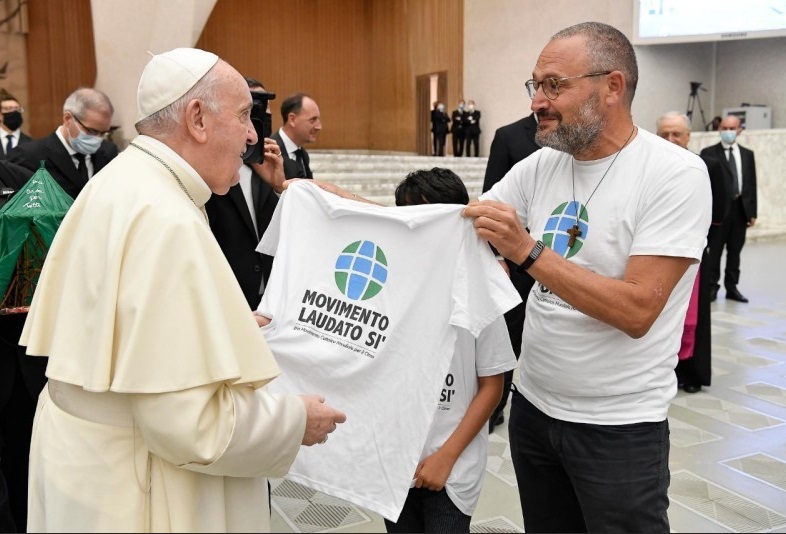A decade of faith-led climate action under Pope Francis
The election of Pope Francis in 2013 promised a new era for the global Catholic community.
Jun 17, 2023

By John Leo Algo
The election of Pope Francis in 2013 promised a new era for the global Catholic community. Inspired by the patron saint of animals and the environment, the head of one of the biggest religious denominations in the world sought to change the role of faith in addressing the ecological crisis.
Ten years into his term, he has made an indelible mark on the Roman Catholic Church’s perspective and approaches to tackling environmental issues.
By highlighting the ecological lens in his reflections and statements, he has not only made problems deemed as too technical or irrelevant more relatable, but also made the institution itself more approachable to billions worldwide.
While previous popes have issued statements and letters on environmental protection and social justice, Pope Francis is the first leader of the Catholic Church to strongly recognise the deteriorating state of the planet and call for transformative actions to address the ecological crisis.
Two years into his term, he issued the encyclical “Laudato Si’: On Care for Our Common Home”, a reflection on the climate crisis, environmental degradation, consumeristic behaviours, and the resulting impact on different communities. It was a ground-breaking move that represented some deviations from traditional Catholic approaches to social issues.
By anchoring the letter on scientific findings regarding the climate crisis and emphasising the human aspect of said issue, Laudato Si’ represented the complementarity between science and faith, two disciplines that have been at odds for centuries. Using this lens also made its messages more universal, allowing it to address people of different religions.
Laudato Si’ also opened up new opportunities for dialogues between religious leaders, scientists, environmentalists, economists, policymakers, communities, and other stakeholders on protecting the planet. It also signified that the Holy See is willing to have a more vocal presence in climaterelevant decision-making processes, as seen by its entry as an active Party in the climate negotiations last year.
By placing itself behind the global climate and environmental movement, the Catholic community has been more influential in initiating sustainable actions worldwide. For example, Catholic institutions have played a pivotal role in the exponential growth of the global divestment movement. As of this year, over 250 Catholic groups joined the faith-based sector which makes up 35 per cent of all institutions that have divested from fossil fuels, more than any sector.
Since the release of Laudato Si’, the Vatican has published several more key documents that shape its official position on ecological issues and guide the actions of its constituency. Among these are the Mensuram Bonam, which presents a set of principles and criteria for making sustainable, responsible, and faith-aligned investments, and the Fratelli Tutti, another encyclical on reestablishing and strengthening fraternity and social friendships as keys to building a better world.
The establishment of the Laudato Si’ Action Platform has been instrumental in inspiring more dioceses, parishes, and communities to conduct ecologically-sustainable activities. Such actions have been addressing numerous issues at the local levels, ranging from the adoption of sustainable lifestyles and ecological economics to taking care of ecosystems and communities alike.
Under Pope Francis’ term and beyond, faith will play an important role in accelerating the growth and implementation of sustainable solutions worldwide for the decades still to come.--LiCAS News







Total Comments:0